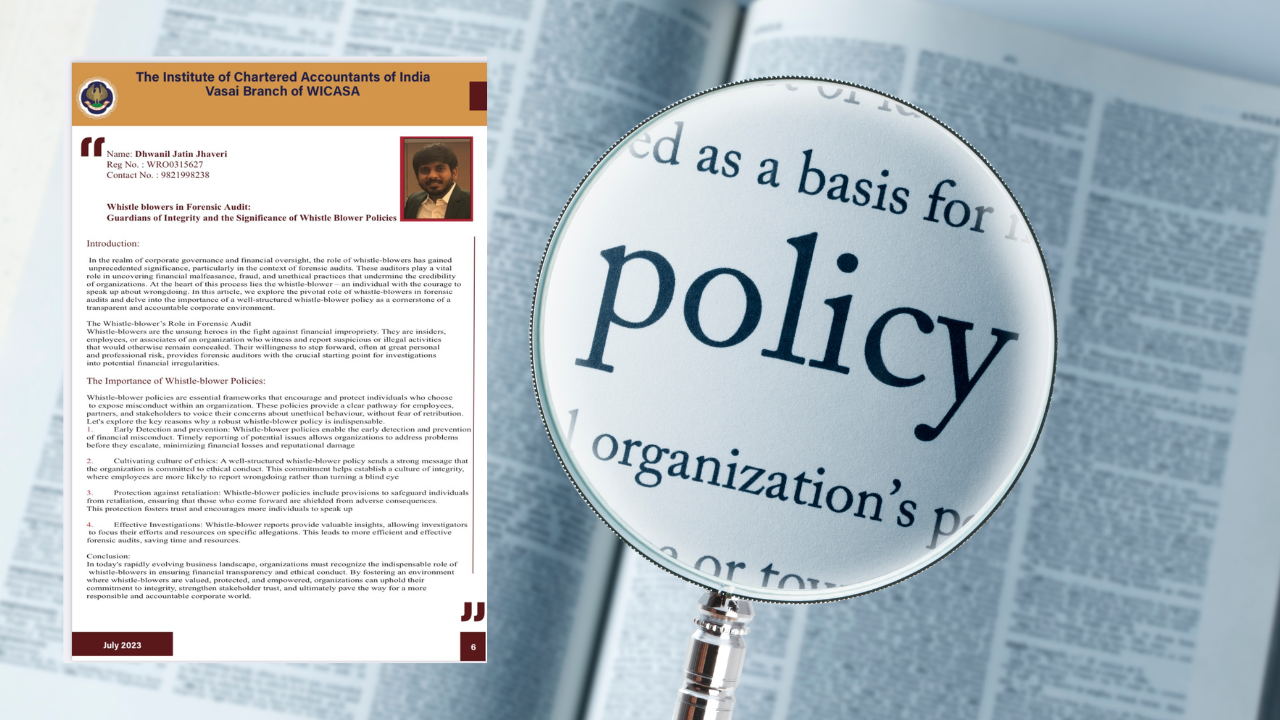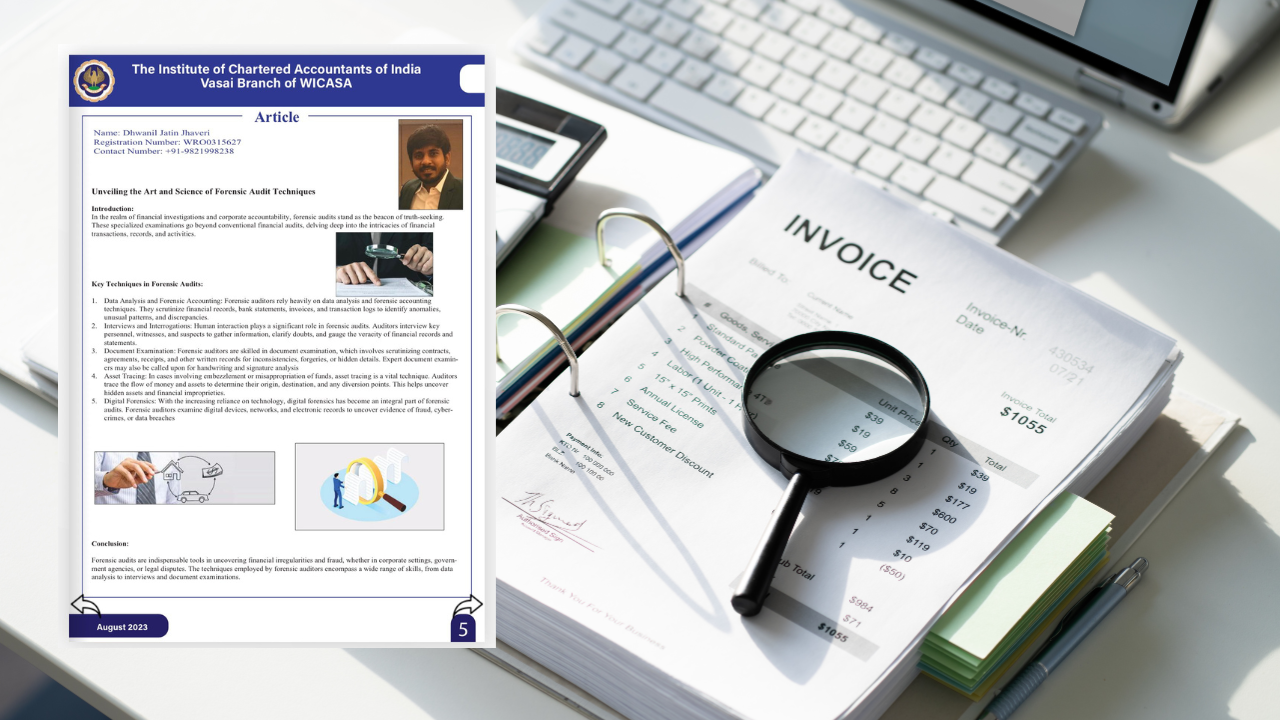

In the realm of corporate governance and financial oversight, the role of whistle-blowers has gained unprecedented significance, particularly in the context of forensic audits. These auditors play a vital role in uncovering financial malfeasance, fraud, and unethical practices that undermine the credibility of organizations. At the heart of this process lies the whistle-blower – an individual with the courage to speak up about wrongdoing. In this article, we explore the pivotal role of whistle-blowers in forensic audits and delve into the importance of a well-structured whistle-blower policy as a cornerstone of a transparent and accountable corporate environment.
Whistle-blowers are the unsung heroes in the fight against financial impropriety. They are insiders, employees, or associates of an organization who witness and report suspicious or illegal activities that would otherwise remain concealed. Their willingness to step forward, often at great personal and professional risk, provides forensic auditors with the crucial starting point for investigations into potential financial irregularities.
Whistle-blower policies are essential frameworks that encourage and protect individuals who choose to expose misconduct within an organization. These policies provide a clear pathway for employees, partners, and stakeholders to voice their concerns about unethical behaviour, without fear of retribution. Let’s explore the key reasons why a robust whistle-blower policy is indispensable.
1. Early Detection and prevention: Whistle-blower policies enable the early detection and prevention of financial misconduct. Timely reporting of potential issues allows organizations to address problems before they escalate, minimizing financial losses and reputational damage
2. Cultivating culture of ethics: A well-structured whistle-blower policy sends a strong message that the organization is committed to ethical conduct. This commitment helps establish a culture of integrity, where employees are more likely to report wrongdoing rather than turning a blind eye
3. Protection against retaliation: Whistle-blower policies include provisions to safeguard individuals from retaliation, ensuring that those who come forward are shielded from adverse consequences. This protection fosters trust and encourages more individuals to speak up
4. Effective Investigations: Whistle-blower reports provide valuable insights, allowing investigators to focus their efforts and resources on specific allegations. This leads to more efficient and effective forensic audits, saving time and resources.
In today’s rapidly evolving business landscape, organizations must recognize the indispensable role of whistle-blowers in ensuring financial transparency and ethical conduct. By fostering an environment where whistle-blowers are valued, protected, and empowered, organizations can uphold their commitment to integrity, strengthen stakeholder trust, and ultimately pave the way for a more responsible and accountable corporate world.

Introduction India, known for its rich history and diverse culture, is also at the forefront of a digital revolution, transformingRead More...

Introduction In an era where the global community grapples with the severe consequences of climate change, the world of financeRead More...

Introduction: In the realm of financial investigations and corporate accountability, forensic audits stand as the beacon of truth-seeking. These specializedRead More...